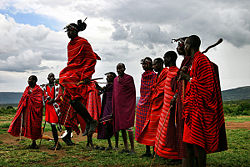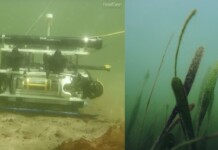 Two people from the Maasai community of Laikipia in Kenya are to be given training in documenting and archiving their cultural heritage through a new project launched yesterday by the United Nations World Intellectual Property Organization (WIPO).
Two people from the Maasai community of Laikipia in Kenya are to be given training in documenting and archiving their cultural heritage through a new project launched yesterday by the United Nations World Intellectual Property Organization (WIPO).
The two people from the Maasai community will travel with an expert from the National Museums of Kenya to the United States for intensive, hands-on training in documentary techniques and archival skills at the American Folklife Center and the Center for Documentary Studies, which are collaborating on the project with WIPO.
“Our goal is to empower tradition-bearers to preserve and pass on their own traditional cultures if they wish to do so while safeguarding their intellectual property rights and interests,” Francis Gurry, Deputy Director General of WIPO, said today.
New technologies provide communities with fresh opportunities to document and digitize expressions of their traditional culture, but these can be vulnerable to unwanted exploitation, according to a statement released by WIPO.
WIPO will also provide the Maasai people with a basic kit of field equipment, computers and software for their own use when they return to Kenya.
The pilot program announced today stems from a request made directly to WIPO by the Maasai community, and is aimed to empower indigenous communities to manage their intellectual property in a way that corresponds with their development goals.



















